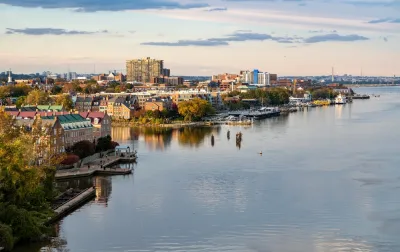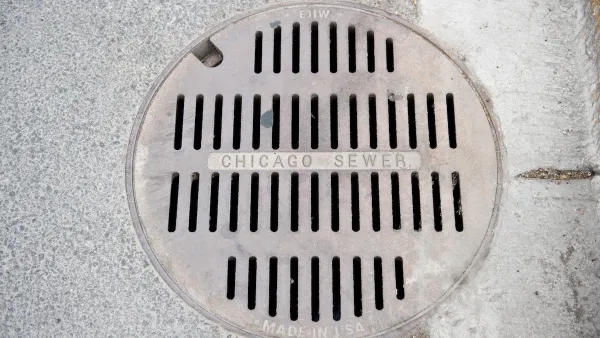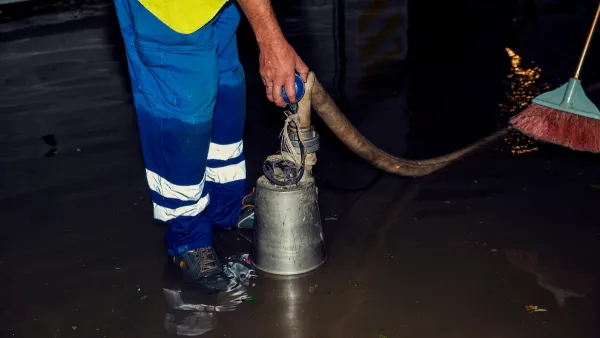After 16 months and $615 of tunneling, Alexandria, Virginia is nearly finished digging a 2.2-mile-long tunnel beneath the city and the Potomac River that will fix its sewage overflow problem.

After over a year of tunneling, Alexandria, Virginia’s efforts to reduce sewage overflows will soon bear fruit, reports Sarah Vogelsong for Inside Climate News. Officials hope the opening of a new 2.2-mile-long sewage storage tunnel beneath Alexandria and the Potomac River will solve the city’s sewage overflow problems during heavy storms, which they anticipate will only get more severe and frequent with climate change.
At issue is the city’s older combined sewer system infrastructure, which allows sewage and runoff from storms to flow through the same pipes; newer systems typically aren’t typically constructed this way. The article explains the problem: “In dry weather, all the flows are directed to wastewater plants for treatment. But heavy rainstorms can overwhelm the system, causing overflows of stormwater as well as sewage into rivers and creeks. That pollution poses a threat to both human health and aquatic life, frequently spurring cities to shut down or restrict access to their waterways.” Alexandria and the state capital, Richmond, both have this kind of system and have been required by the state legislature to address the overflows. But they aren’t alone. Another 700 municipalities across the United States, including New York City and Chicago, have combined sewer systems and deal with similar issues, though that number is down from 1,100 in 1994, Vogelsong writes.
“Curbing the pollution that stems from these systems is a daunting task, one that takes not only engineering on a massive scale, but money in the tens to hundreds of millions of dollars. In Virginia, Alexandria’s project comes with a price tag of $615 million. Richmond has spent roughly $300 million over the past 35 years and expects to pony up an additional $600 million to meet the state’s 2035 deadline,” the article reads. Vogelsong also reports that the issue might get increased attention when a new legal case brought by San Francisco against the EPA is scheduled to go before the Supreme Court in its next term. It will be one of the first major environmental cases since the Supreme Court overturned the Chevron doctrine, an action that stripped federal agencies of the final say on ambiguous policies contained within federal legislation like the Clean Water Act.

Analysis: Cybertruck Fatality Rate Far Exceeds That of Ford Pinto
The Tesla Cybertruck was recalled seven times last year.

National Parks Layoffs Will Cause Communities to Lose Billions
Thousands of essential park workers were laid off this week, just before the busy spring break season.

Retro-silient?: America’s First “Eco-burb,” The Woodlands Turns 50
A master-planned community north of Houston offers lessons on green infrastructure and resilient design, but falls short of its founder’s lofty affordability and walkability goals.

Test News Post 1
This is a summary

Analysis: Cybertruck Fatality Rate Far Exceeds That of Ford Pinto
The Tesla Cybertruck was recalled seven times last year.

Test News Headline 46
Test for the image on the front page.
Urban Design for Planners 1: Software Tools
This six-course series explores essential urban design concepts using open source software and equips planners with the tools they need to participate fully in the urban design process.
Planning for Universal Design
Learn the tools for implementing Universal Design in planning regulations.
EMC Planning Group, Inc.
Planetizen
Planetizen
Mpact (formerly Rail~Volution)
Great Falls Development Authority, Inc.
HUDs Office of Policy Development and Research
NYU Wagner Graduate School of Public Service




























